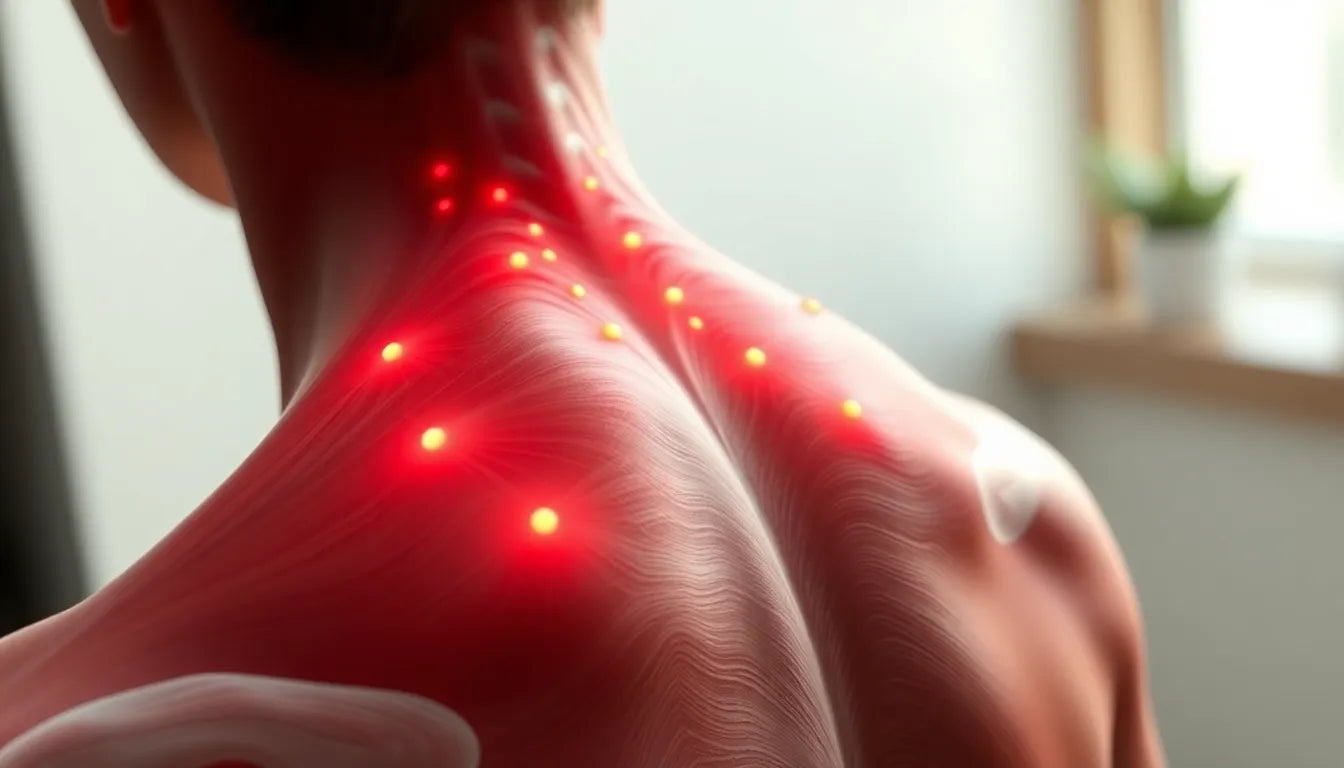Imagine waking up every day with a persistent, nagging back pain that just won't go away. You might dismiss it as the result of a poor night's sleep or an awkward twist, but what if it’s something more serious? This discomfort could be a sign of a herniated disc, a common yet often overlooked condition that can have severe consequences if ignored for too long.
Understanding herniated discs
A herniated disc, sometimes referred to as a slipped or ruptured disc, occurs when the soft inner gel of a spinal disc pushes through the tougher exterior. This can happen due to wear and tear over time, or from an injury. The spine, a complex structure of bones, discs, and nerves, is designed to support your body and facilitate movement. When a disc herniates, it can press on the surrounding nerves, leading to pain, numbness, or weakness in the back, legs, or arms.
Initially, a herniated disc might present as a minor discomfort. However, without timely intervention, this condition can escalate into a more serious issue. The body may try to heal itself, but if the herniation is significant, professional medical treatment is often necessary to prevent long-term damage.
The importance of early intervention
Addressing disc issues early is crucial. Ignoring the symptoms of a herniated disc can lead to chronic pain and significant lifestyle changes. Over time, the persistent pressure on the nerves can cause irreversible damage, affecting your ability to perform everyday activities. The pain can become debilitating, impacting not just your physical health but also your emotional well-being.
Furthermore, untreated herniated discs can accelerate degenerative changes in the spine, increasing the risk of further complications. This can lead to conditions such as cauda equina syndrome or cervical region injuries, which require urgent medical attention to prevent severe outcomes like paralysis.
In conclusion, while a herniated disc may start as a small inconvenience, it is a ticking time bomb that should not be ignored. Early diagnosis and treatment are key to preventing serious complications and maintaining a good quality of life. By understanding the risks and taking proactive steps, you can manage the condition effectively and avoid long-term consequences.
Chronic pain and its emotional impact
Living with a herniated disc that goes untreated can lead to chronic pain, a relentless companion that affects every aspect of daily life. This persistent discomfort can extend beyond physical pain, seeping into emotional and mental health. Individuals often experience anxiety and frustration as they struggle with limitations imposed by their condition. The constant battle with pain can lead to feelings of helplessness and isolation, significantly diminishing one's quality of life. Addressing these emotional aspects is crucial, as they are just as debilitating as the physical symptoms.
Understanding nerve damage and muscle weakness
One of the most concerning risks of ignoring a herniated disc is the potential for nerve damage. When a disc herniates, it can compress nearby nerves, and prolonged pressure can lead to permanent nerve damage. This damage manifests as chronic pain, muscle weakness, or loss of sensation in the affected areas. Imagine a scenario where a person experiences a herniated disc in the lower back, leading to sciatica—a condition characterized by sharp, shooting pain down the leg. Over time, this can result in muscle atrophy, where the muscles waste away due to lack of use, further impairing physical function and mobility.
Loss of mobility and function
Continuous compression of nerves or the spinal cord can drastically reduce mobility, making everyday activities challenging. In severe cases, such as with cauda equina syndrome or injuries in the cervical region, the consequences can be dire, leading to paralysis. Cauda equina syndrome is a medical emergency where the bundle of nerves at the end of the spinal cord is compressed, requiring immediate surgical intervention to prevent permanent damage. These conditions illustrate the critical need for prompt medical attention to avoid irreversible outcomes.
Degenerative changes in the spine
Ignoring a herniated disc doesn't just affect the immediate area; it can accelerate degenerative changes throughout the spine. This process involves the deterioration of the spinal discs and joints, increasing the likelihood of further spinal problems. Over time, these changes can lead to additional herniations, spinal stenosis, or osteoarthritis, compounding the pain and dysfunction. It becomes a vicious cycle where initial neglect leads to a cascade of spinal issues, each more challenging to treat than the last.
Symptoms that evolve over time
As a herniated disc remains untreated, symptoms can evolve or worsen, indicating the progression of the condition:
- Persistent burning pain that doesn't subside with rest or medication
- Prickly or altered sensation, such as numbness or tingling in the limbs
- Loss of strength in the affected limbs, making even simple tasks difficult
- Difficulty with mobility or walking, affecting balance and coordination
Recognizing these symptoms early and seeking medical advice is essential to prevent long-term damage and maintain a good quality of life.
In conclusion, while a herniated disc might initially seem like a minor inconvenience, its long-term implications are far more severe. The risk of chronic pain, nerve damage, loss of mobility, and degenerative spine changes underscores the importance of early intervention. By understanding the potential consequences and taking proactive steps, individuals can manage their condition effectively and avoid the ticking time bomb of untreated herniated discs.
Permanent complications of untreated herniated discs
While the majority of herniated discs can be managed with timely intervention, ignoring this condition can lead to rare but severe outcomes. One of the most serious complications is permanent paralysis, which can occur if the spinal cord or cauda equina is severely compromised. This irreversible damage underscores the critical importance of addressing herniated discs promptly. The risk of such severe outcomes highlights the necessity for individuals to remain vigilant about their symptoms and seek medical advice when necessary.
Preventative measures and management strategies
Preventing the escalation of a herniated disc involves a combination of lifestyle changes and ergonomic solutions. Incorporating ergonomic aids, such as supportive chairs and adjustable desks, can significantly reduce strain on the spine during daily activities. These products promote proper posture, alleviate pain, and support mobility, providing a non-invasive option for managing chronic disc issues. Additionally, regular physical activity tailored to strengthen the core muscles can help stabilize the spine and prevent further injury.
For those already experiencing symptoms, conservative management strategies like physical therapy can be effective. Therapists can guide specific exercises to improve flexibility and strength, potentially easing the pressure on affected nerves. In more severe cases, advanced treatments such as surgery might be necessary to relieve nerve compression and restore function.
Recognizing warning signs and taking action
Understanding when to seek medical attention is crucial in managing a herniated disc. Warning signs that necessitate immediate care include severe or persistent pain, significant loss of sensation, or difficulty with mobility. These symptoms could indicate worsening conditions that require prompt intervention to prevent permanent damage. By recognizing these signs early, individuals can take proactive steps to address their health and avoid long-term complications.
Real-world patient scenarios
Consider the story of John, a 45-year-old office worker who initially dismissed his back pain as a minor inconvenience. Over time, his symptoms progressed to include numbness in his legs and difficulty walking. Upon seeking medical advice, he was diagnosed with a herniated disc compressing his sciatic nerve. Through a combination of physical therapy and ergonomic adjustments at work, John managed to alleviate his symptoms and regain his mobility. His story illustrates the importance of early intervention and the effectiveness of combining lifestyle changes with medical treatment.
Concluding thoughts
In conclusion, living with a herniated disc is akin to carrying a ticking time bomb that, if ignored, can lead to severe consequences. The potential for chronic pain, nerve damage, and even paralysis underscores the importance of early intervention. By recognizing the warning signs and adopting preventative measures, individuals can manage their condition effectively and maintain a good quality of life. Remember, taking proactive steps now can prevent the escalation of symptoms and ensure a healthier, more comfortable future.
Frequently Asked Questions
What are the early signs of a herniated disc?
Common early signs include localized back pain, tingling or numbness in limbs, and muscle weakness.
How can ergonomic aids help with a herniated disc?
Ergonomic aids support proper posture, reduce strain on the spine, and alleviate pain, making daily activities more manageable.
When should I seek medical attention for a herniated disc?
Seek medical attention if you experience severe or persistent pain, loss of sensation, or difficulty with mobility, as these could indicate worsening conditions.
Can a herniated disc heal on its own?
Some herniated discs may improve with rest and conservative treatment, but persistent or severe cases often require medical intervention.
What are the long-term risks if a herniated disc is left untreated?
Long-term risks include chronic pain, permanent nerve damage, muscle weakness, loss of mobility, and in severe cases, paralysis.
Sources
- Spine.md. "Long-term effects of herniated discs and importance of early treatment."
- CurePain.net. "Serious complications such as chronic pain and paralysis if ignored."
- Mayo Clinic. "Overview of herniated disc symptoms and causes."
- NCBI Bookshelf. "Medical complications like chronic back pain from untreated herniation."
- Owchealth.com. "Detailed explanations about permanent nerve damage, weakness, and paralysis risks."
- ProHealth Clinic. "Symptoms and patient experience after a year with a herniated disc."


















